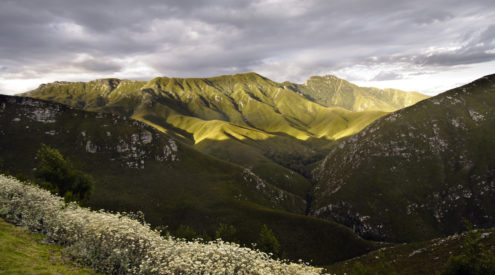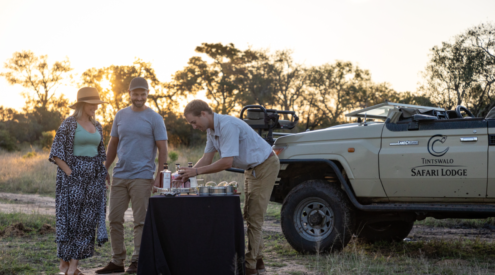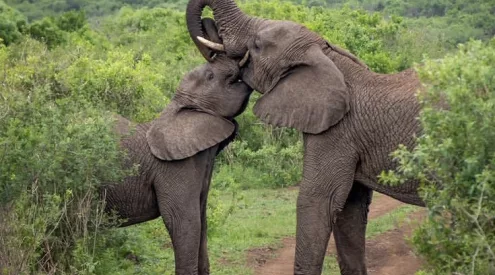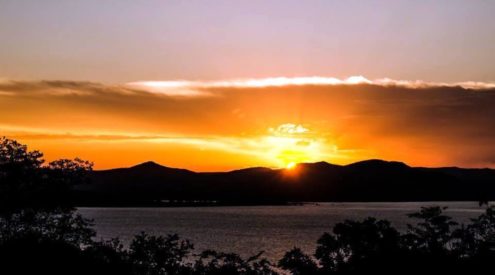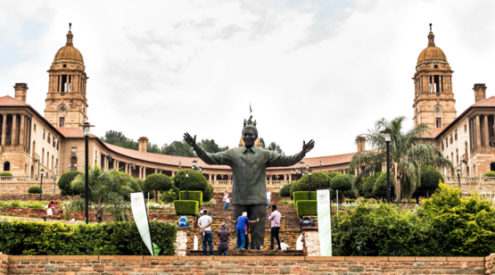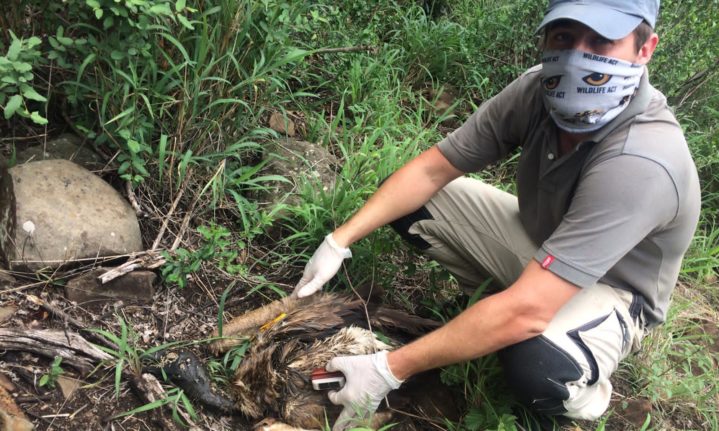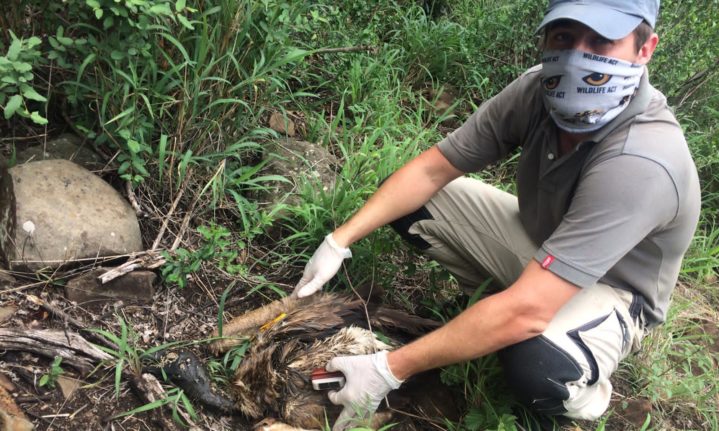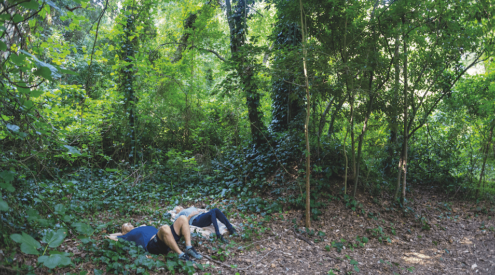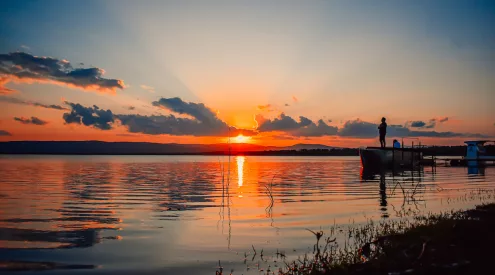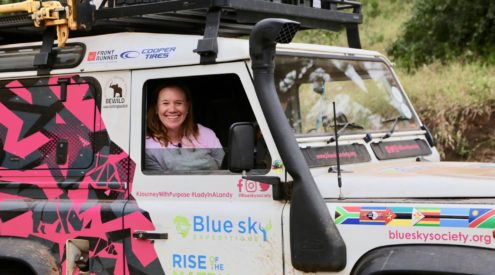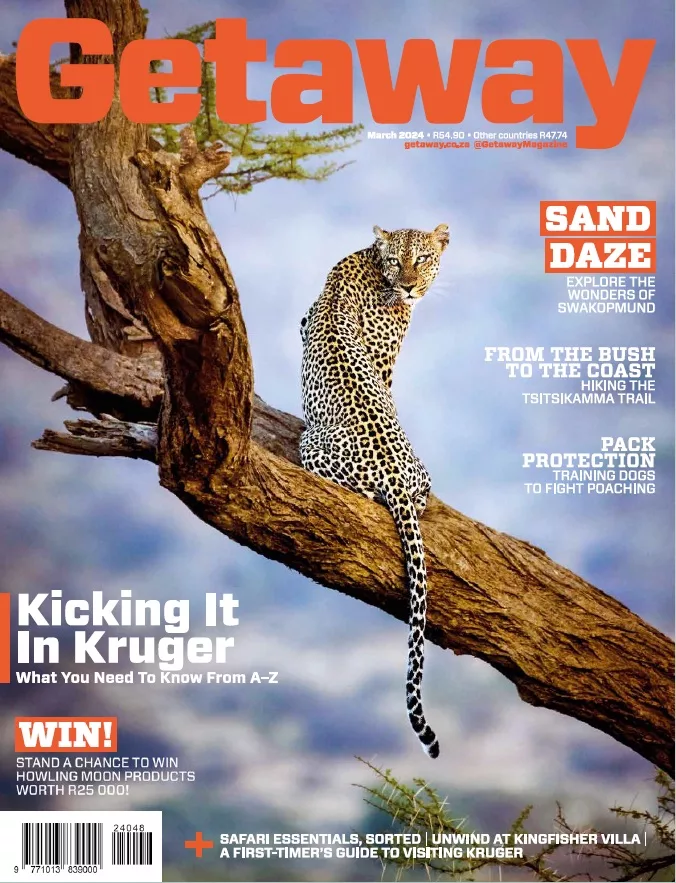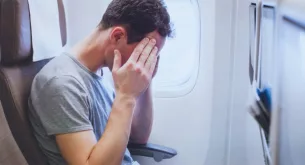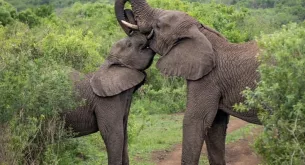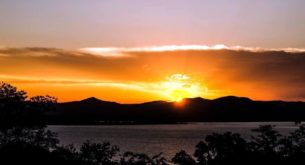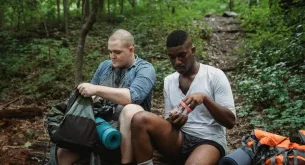A critically endangered African White-Backed vulture was found poisoned with the possibility of more vulture carcasses removed from the site in Zululand over the festive season.
Poisoning is the primary threat facing these birds in KwaZulu-Natal and, without swift response, a single poisoning incident can affect an entire breeding cluster. Vultures are poisoned and then sold in traditional markets where their parts are sought after.
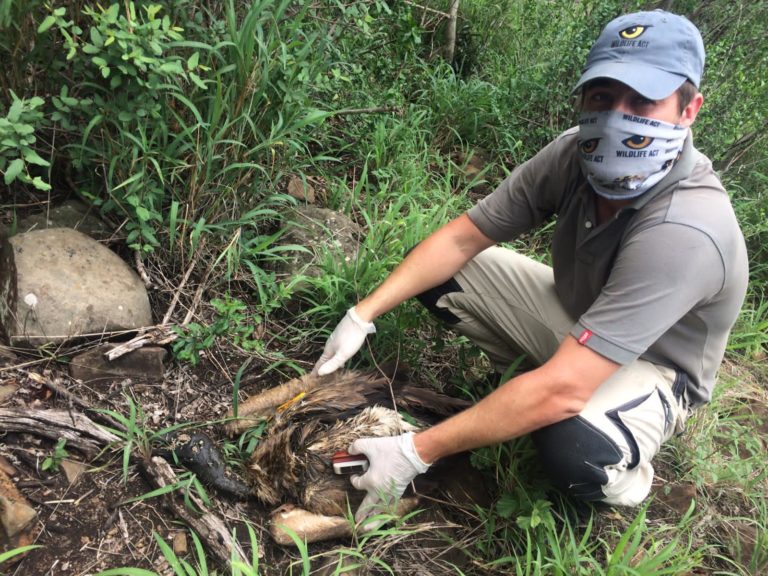
‘Once we picked up that there was a poisoning incident, we quickly deployed a helicopter to search for any additional birds which may have been affected, thus minimising the impact of the poisoning’, said PJ Roberts, Emergency Response Manager for Wildlife ACT. He further highlighted that ‘it is crucial that the poison is neutralised and the area swept to avoid any long term impact – to both vultures and other species in the environment.’
Through this ground effort, additional clumps of feathers were noted around the area where the carcass was found, indicating that other vultures could have been harvested and removed from the site prior to the Emergency Response Team’s arrival. SAPS were contacted and a case has been opened at the Mkuze police station.
Vulture numbers across the continent are in a steep decline, affected by numerous anthropogenic threats. It is critical that conservation efforts are increased to address these threats and halt the population decline. Vultures play an extremely important role in our ecosystems, cleaning up carcasses across the landscape and removing risks of certain disease outbreaks. As such, every individual vulture is important, and mitigating threats to these birds is a primary focus of Wildlife ACT’s Vulture Programme. As part of this programme, Wildlife ACT monitors KZN populations of various vulture species, including the African White Backed Vulture.
Through this monitoring effort, the team is able to understand fine-scale movements of certain individuals and groups. This monitoring, continued by the team over the Christmas period, enabled Wildlife ACT to pick up a high-risk area and, through the deployment of the Emergency Response Unit, find the site of the poisoning.
‘Vultures face many threats – poisoning is just one of them. There are also power lines and other energy infrastructure, habitat change and loss, and lack of food that all play a role,’ said Chris Kelly, Wildlife ACT Director – Species Conservation.
‘It is therefore important that we address the conservation of these species at numerous levels, including reactive approaches such as our Emergency Response Fund, as well as proactive measures such as long term monitoring, education and awareness about the value of the species, and working with governments to develop a long term policy framework to guide their conservation.’
Monitoring this critically endangered species involves fitting individuals with either patagial wing tags, GPS backpacks or both. These efforts form part of the Zululand Vulture Projects’ efforts to monitor the fine-scale movements and behaviour of African White-Backed and Lappet Faced Vultures, as well as identify potential threats and areas of risk.
In 2020, another threat to their existence surfaced as two African White-Backed vultures were found shot in two separate incidents, adjacent to protected land. Discussions with local leaders revealed that the shooting of vultures was not uncommon in the area, with few people understanding their protected status, as well as the ecological value that the species provide.
Vultures play an extremely important role in the ecosystem. Flying in from huge distances, they clean up carcasses in the field thereby helping to control disease outbreaks. These magnificent birds essentially allow us to measure the functioning and health of an ecosystem. An element of our work aims to obtain a better understanding of these birds’ fine-scale habits to inform conservation management.
As is the case with many other endangered species, vultures are not confined to protected areas and game reserves. It is therefore everyone’s responsibility to assist in the conservation of the species.
To get involved or support the Zululand Vulture Project, email [email protected] or follow this link to donate.
Pictures: Casey Pratt/Love Africa Marketing


